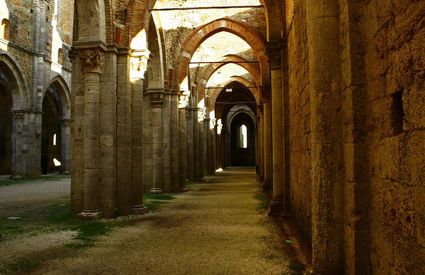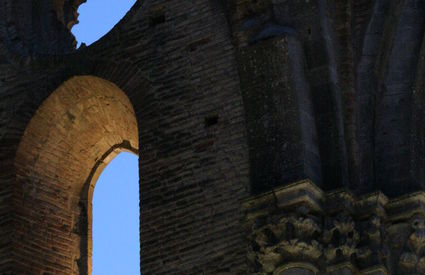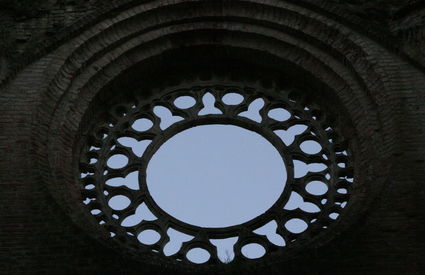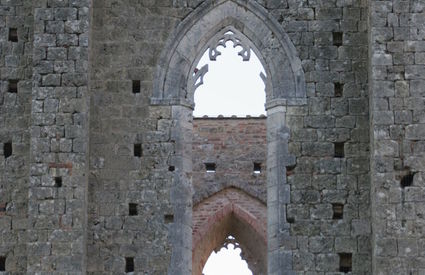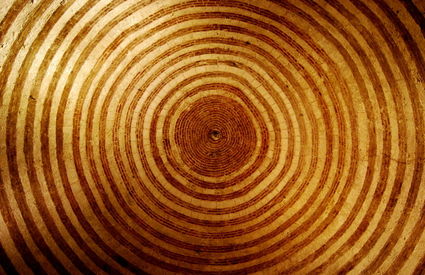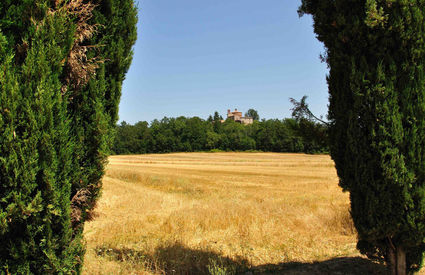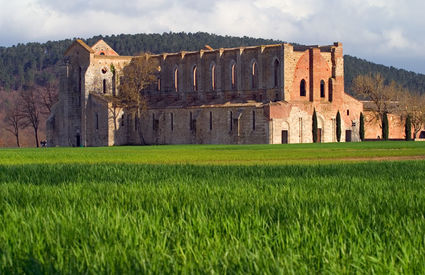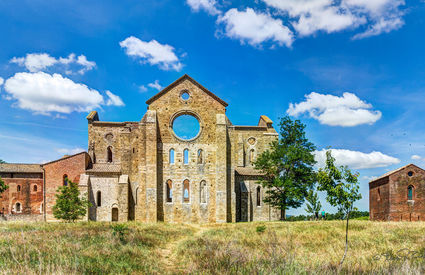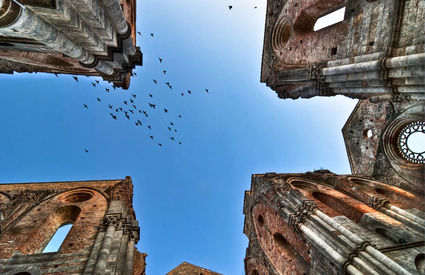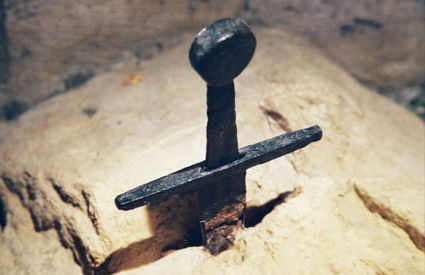Chiusdino
The abbey
A sky like a ceiling ~ by Giulio Pedani
The abbey
A sky like a ceiling ~ by Giulio Pedani
Autumn
The small plot of land you’re cultivating looks over the giant roofless abbey from on high. Now that you’re soon going to have to go away to war, you fiddle with the red dirt with your hands for the last time, as if caressing it, then you pick some fruit and let it fall. San Galgano dominates the valley like a fort above the grain. You came to bid goodbye to the ruins—this is the truth. He saw you many times—your house, your children. When you were little, on summer nights you’d run inside yelling like the lord of the birds of prey. You couldn’t do it in any other church, and nowhere else in the spring could you play with a ragged old ball on a sparkling, soft grassy floor. In the neverending afternoons, with friends from the nearby town, you would play hide and seek for hours amid the columns and the doors. The woman who would go on to become your wife didn’t like going there at night; she’d say that the large, open rose window seemed like a monster’s eye. You’d always go back there alone, and you had a good time trying to come up with definitions for that prodigious building, trying to use your imagination to break through your sensory limits. A starry roof. The castle of the wizards. A destroyed fortress. A witches’ hospital. At times, it seemed like all of those cracks in the walls talked to you, as if they were small mouths in the sky. On the day that your mother died, the abbey was immersed in fog; you sauntered around inside without knowing what to do, shrouded by the silence of those vapors that enveloped it from the bottom of the fields like underground fumes.
Spring
You’ve returned home, but there’s nothing left to eat. The Germans are everywhere, but you know of areas in th woods where no one will find you. You’re so hungry that you risk your life to go and see if, in the old abandoned field, something has happened to grow on its own. The war transformed you into a bony spirit, now wandering through the brush, through trenches and oaks, through mysterious caves and murals with scattered bits of ivy. At the end of an hours-long march through the woods, you climb the slope leading up to another small field: there you are at the top, and there’s the abbey—it’s still standing after so many years of blood and conflict, unmoved in the face of wars and the passing of centuries, or those of Federico II and Innocenzo III, or the plague, the companies of mercenaries, the lightning and thunder. The field, as you knew, is invaded with weeds and spontaneous seedlings, but the trees drench out fruit. You don’t stop observing the ruins below from up on high—the slits, the apse, the buttresses, the cemetery; you fix it as you devour all the apples that go straight to your belly. It begins to rain, which is a good thing for the field that’s already growing beneath the aisls.


